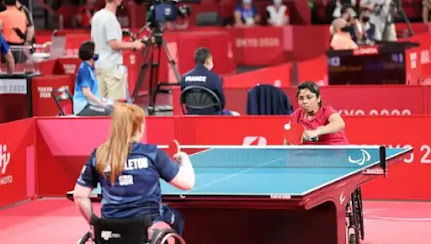Japan and disability : Will Tokyo Paralympics bring change? The country's efforts to improve accessibility, inclusion will be under the spotlight during the Games.
Tokyo : As the Paralympics Games begin, Japan's efforts to improve accessibility and inclusion are in the spotlight, with many arguing that there is still plenty of work to do.
Some 4,400 athletes with impairments will compete in Tokyo at the world's biggest parasports tournament.
It's a place for sporting history, but also an attempt organisers say can change attitudes towards people with disabilities.
''It's a precious event,'' said Masaaki Suwa, a Japanese para-canoeist who missed the cut for the Tokyo Games but will be cheering for Japan's team on television.
''They are doing great things but they are not superhuman. I want people to know that they are human beings just like you,'' the 35-year-old told AFP.
It's a bittersweet moment for Suwa, who had hoped to compete in his hometown, but he's counting on other Paralympians to make an impact on Japanese society.
''I hope [ the Paralympics] will be a springboard that allows people to live more closely alongside disabled people,'' said Suwa, who uses a wheelchair.
Disability rights experts and activists paint a mixed picture of the situation in Japan. There has been progress on barrier-free infrastructure, with officials calling accessibility important both for people with disabilities but also for the country's large elderly population.
A barrier-free enforcement law has been revised twice in recent years to promote accessibility at public facilities.
Particular efforts have been made in Tokyo's mammoth train system, with elevators operating at around 96 percent of stations as of 2019, the city government says.
By 2019, 8 percent of Tokyo subway stations also had platform gates to keep visually impaired passengers and others safe - up from 56 percent in 2013.
New hotels with more than 50 rooms are also required to make at least one of every 100 barrier-free.
''In terms of the number of barrier-free facilities, Japan appears advanced,'' said Miki Matheson, deputy chief of Japan's Paralympic delegation. But the three-time Paralympic gold medalist, who lives in Canada and is in Tokyo for the Games, says accessibility is not the same as inclusion.
''I'm often treated as a disabled person when I'm back in Japan,'' said Matheson, who uses a wheelchair. ''In Canada, I live without noticing my disability at all.'' [AFP]

.png)


0 comments:
Post a Comment
Grace A Comment!